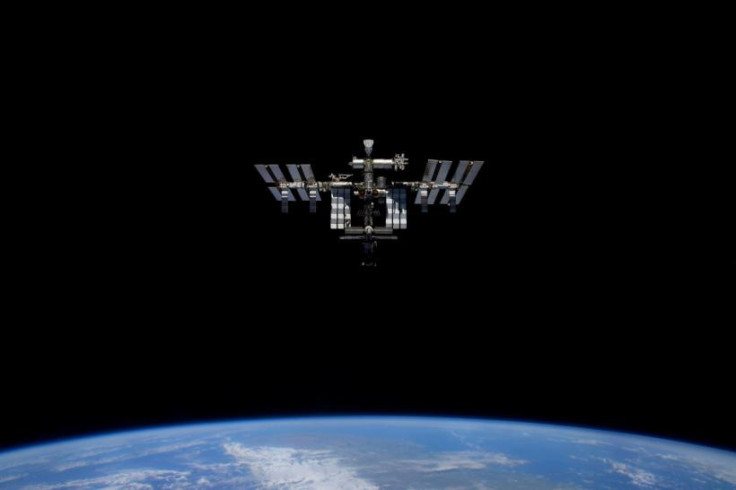Russia may have to 'rescue' its space station crew due to leak in spacecraft
The leak looked like a flurry of snowflake-like particles and lasted for hours.
Russia may have to send a spacecraft to the International Space Station (ISS) to "rescue" its cosmonauts after their Soyuz capsule reported a leak in it.
The capsule is docked at the orbiting outpost of the ISS and the "unexplained leak" was spotted earlier this month. It sent fluid and particles spewing out into space and led to an increase in temperature in the crew section.
It was detected when two of the Russian cosmonauts were preparing to go on a routine spacewalk.
They aborted the mission after Russian Mission Control saw a torrent of fluid leaking from the capsule on a live video feed. It looked like a flurry of snowflake-like particles and lasted for hours.
The crew had to use ventilators in the Russian section to blow cold air into the capsule to bring the temperature down. Russia's space agency, Roscosmos, has said that it is considering bringing the three cosmonauts back home, per a report in The Independent.
"The increase in temperature on the Soyuz MS-22 spacecraft is admissible and isn't critical for the functioning of the equipment or health of the crew in case they need to be in the spacecraft," the agency noted.
At a joint press conference, Roscosmos and NASA officials said that they are investigating the leak and that no final decision has been made with regard to flying the cosmonauts back.
Soyuz capsule leak could strand 3 astronauts on space station, raising safety concern, expert says https://t.co/XFt4KTWoZI pic.twitter.com/MAXNOSCVM2
— SPACE.com (@SPACEdotcom) December 16, 2022
Excuse me, sir, your capsule is leaking 😬😬😬
— Swapna Krishna (@skrishna) December 19, 2022
Here’s what is going on with that Soyuz capsule at the ISS that sprung a leak pic.twitter.com/5aE4LilY0G
They were originally meant to fly back home in March, but they might have to be retrieved in February. Russia's chief of crewed space programs, Sergei Krikalev, said that the leak could have been caused by a micrometeoroid strike.
However, both NASA and Roscosmos have not yet ruled out the possibility that the leak could have also been caused by a hardware failure or an impact by a tiny piece of space debris.
The International Space Station (ISS) is essentially a science laboratory that orbits the Earth. It is a collaboration between the United States, Russia, Canada, Europe, and Japan and is due to be retired after 2024, although NASA has said it could potentially remain functional beyond 2028.

© Copyright IBTimes 2025. All rights reserved.






















